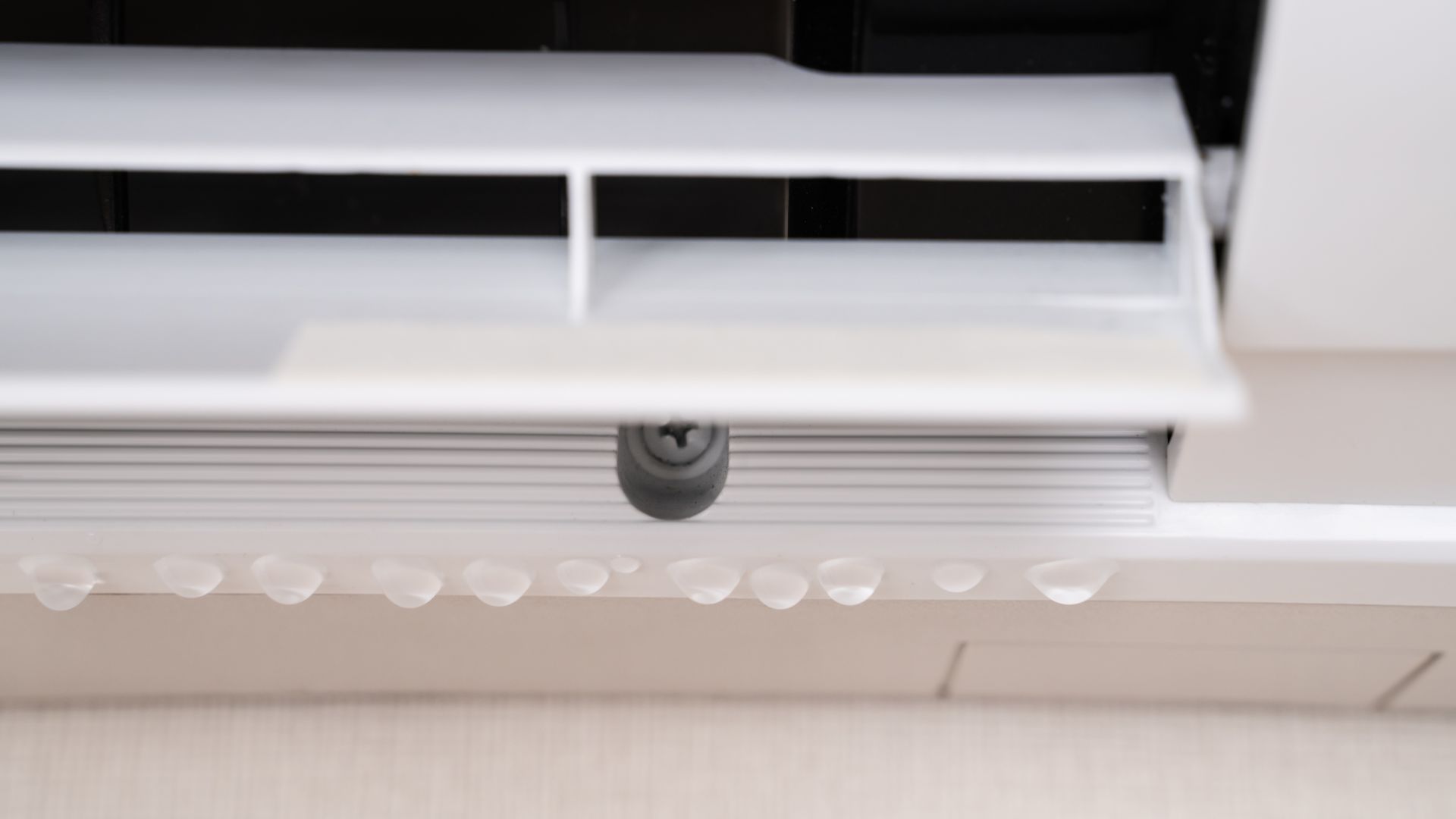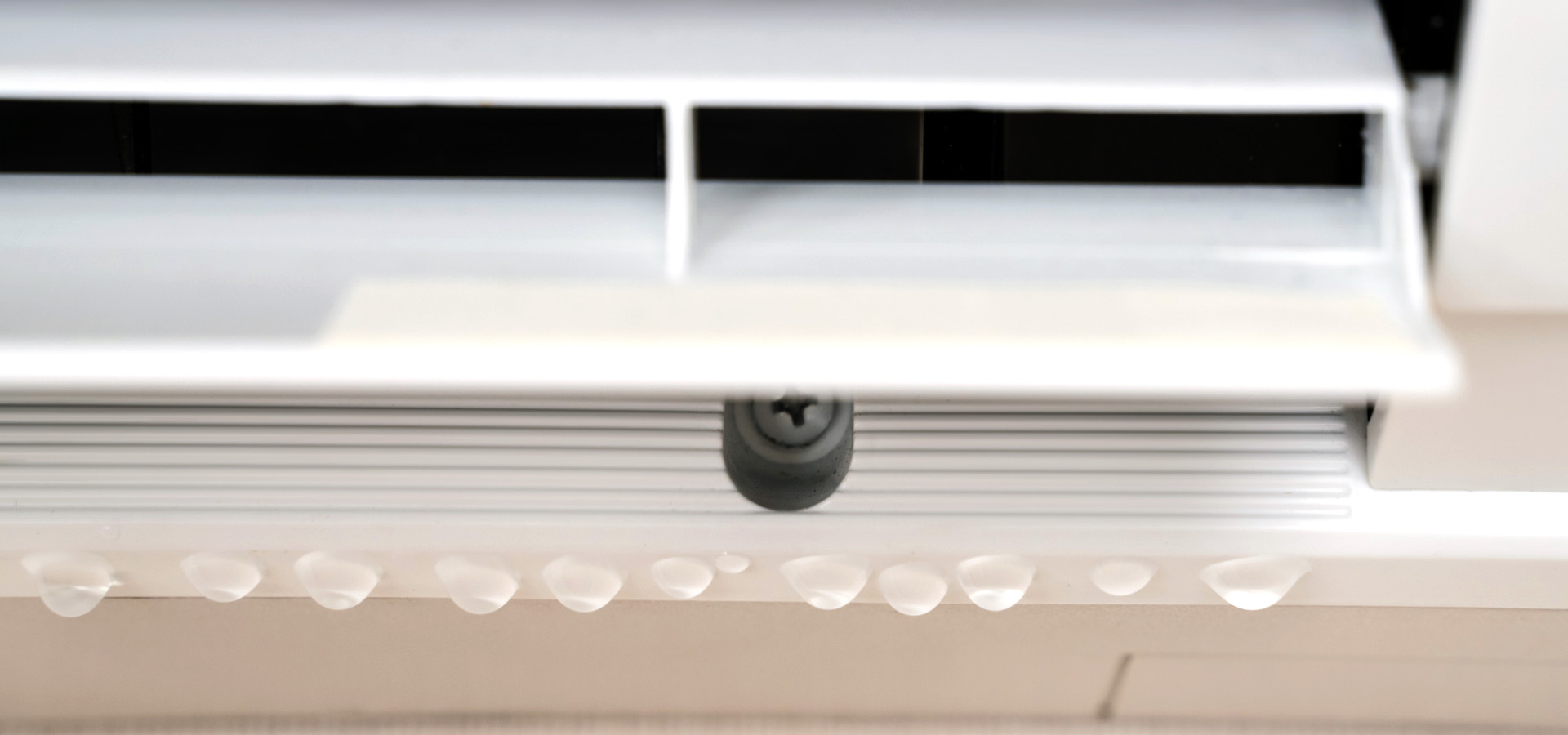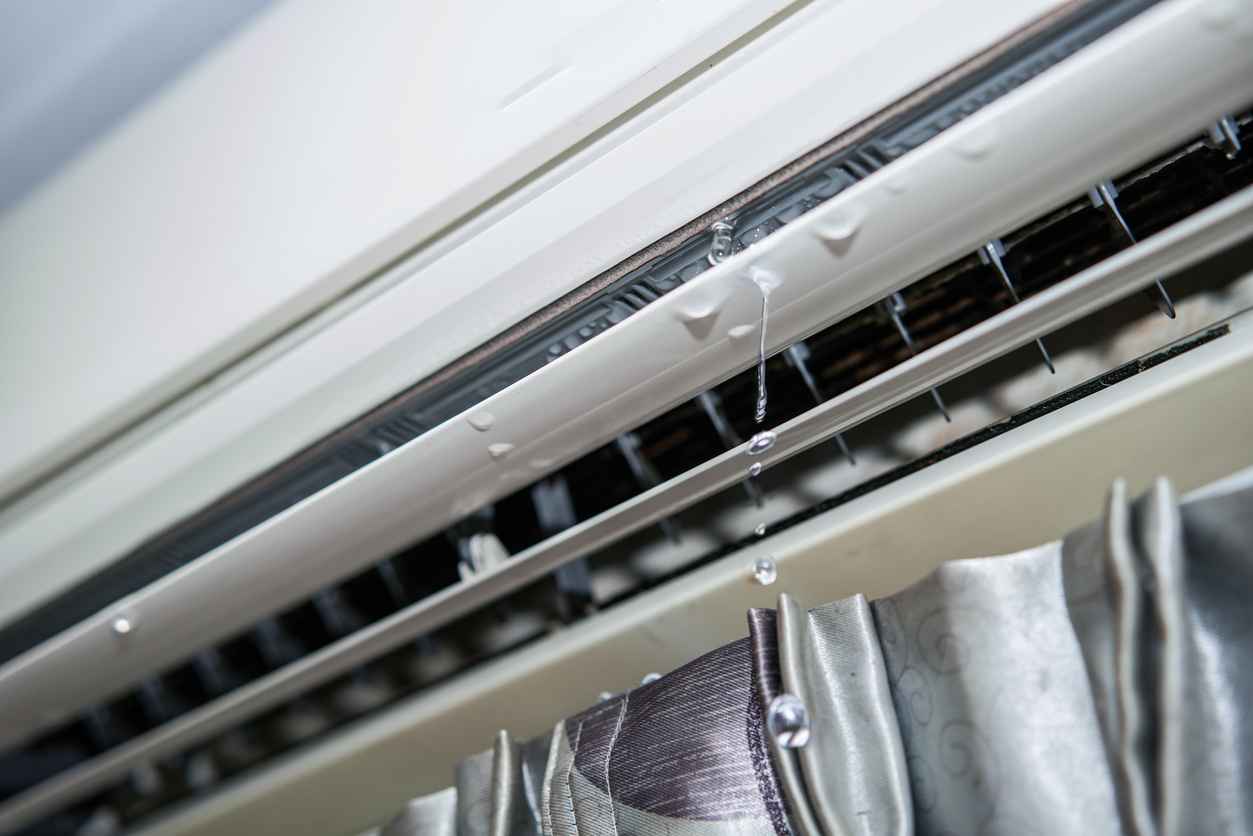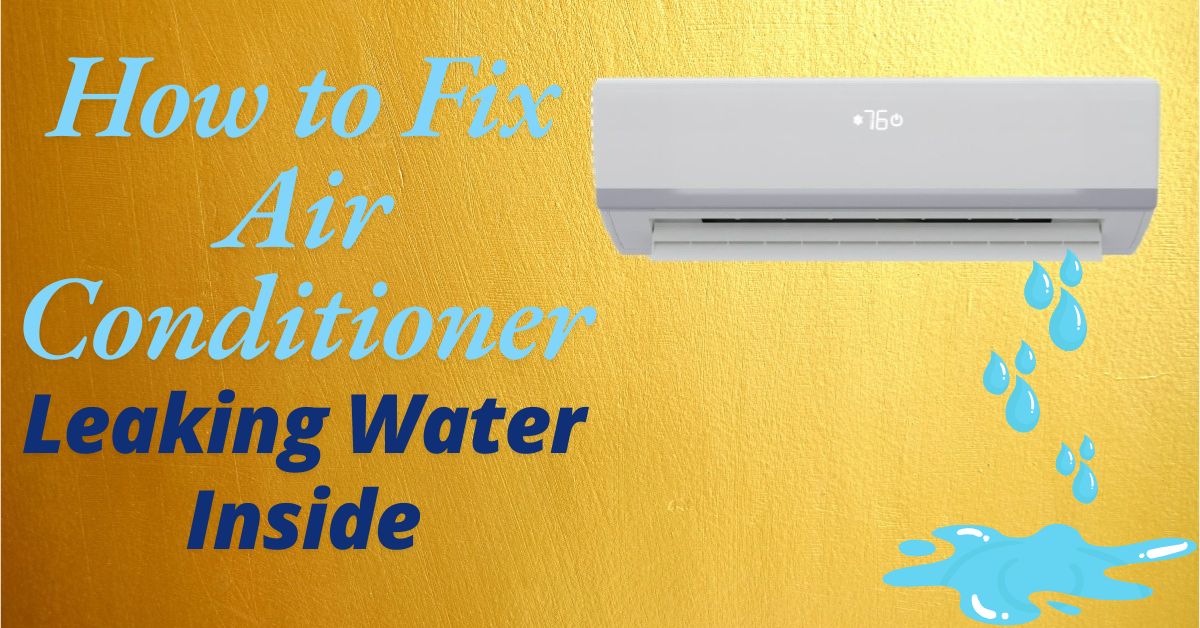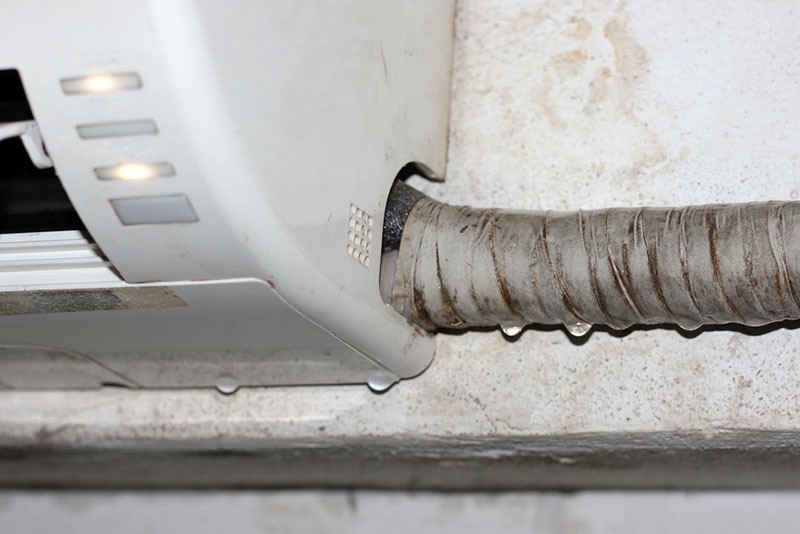What To Do If Air Conditioner Is Leaking

Air Conditioner Leaking? A Comprehensive Guide for HVAC Professionals and Homeowners
A leaking air conditioner is a common problem that can range from a minor nuisance to a major red flag indicating serious system issues. Whether you're an HVAC technician, a student learning the ropes, or a homeowner looking to understand the problem, this guide provides a detailed breakdown of what to do when you discover your AC is leaking. It covers diagnostics, troubleshooting, and preventative maintenance, as well as relevant career information for HVAC professionals.
Identifying the Leak: What's Leaking and Why?
The first step is to accurately identify what is leaking. Most commonly, the culprit is water condensation. However, refrigerant leaks, while less frequent, pose a greater threat to both the environment and the efficiency of your AC system. Understanding the difference is crucial.
Water Leaks: The Usual Suspect
Condensation is a natural byproduct of the cooling process. As warm air passes over the cold evaporator coils, moisture condenses and drips into a drain pan. This water should then flow through a drain line and exit the system. Common causes of water leaks include:
- Clogged Drain Line: This is the most frequent cause. Algae, mold, and debris can accumulate in the drain line, causing a blockage.
- Damaged Drain Pan: The drain pan itself can crack or rust, leading to leaks.
- Dirty Air Filter: A clogged air filter restricts airflow, causing the evaporator coil to freeze. When the ice melts, it can overwhelm the drain pan.
- Low Refrigerant: Ironically, low refrigerant can also lead to a frozen evaporator coil, resulting in excess water when the ice melts. This is less common, but still possible.
Refrigerant Leaks: A Serious Concern
Refrigerant leaks are a more serious problem. Refrigerant is essential for the cooling process, and a leak indicates a system malfunction. Signs of a refrigerant leak include:
- Poor Cooling Performance: The AC struggles to cool the room, or the air isn't as cold as it used to be.
- Hissing or Bubbling Noise: You might hear a faint hissing or bubbling sound coming from the AC unit.
- Ice Buildup on the Evaporator Coils: While this can also be caused by a clogged filter, it's a common symptom of low refrigerant.
- Higher Energy Bills: The AC works harder to compensate for the refrigerant loss, leading to increased energy consumption.
Troubleshooting Steps for Water Leaks
If you suspect a water leak, here's a step-by-step approach to troubleshooting:
- Turn Off the AC: Safety first! Turn off the air conditioner at the thermostat and the breaker.
- Check the Air Filter: Replace a dirty air filter immediately. This is a simple fix that can prevent many issues.
- Locate the Drain Line: Find the drain line, usually a PVC pipe located near the indoor unit.
- Clear the Drain Line: You can try to clear the drain line yourself using a wet/dry vacuum. Attach the vacuum to the end of the drain line and try to suck out any debris. Alternatively, you can use a stiff wire or a drain snake to break up the clog. Pouring a cup of distilled vinegar down the drain line monthly can help prevent future clogs.
- Inspect the Drain Pan: Check the drain pan for cracks or damage. If you find any, the pan will need to be replaced.
- Monitor the AC: After taking these steps, turn the AC back on and monitor it to see if the leak has stopped.
Addressing Refrigerant Leaks: Call a Professional
Refrigerant leaks require the expertise of a licensed HVAC technician. Handling refrigerant requires specialized equipment and knowledge, and it's illegal to knowingly vent refrigerant into the atmosphere. If you suspect a refrigerant leak, do not attempt to fix it yourself. Contact a qualified HVAC professional immediately.
A technician will use specialized tools, such as a refrigerant leak detector, to pinpoint the leak. They will then repair the leak and recharge the system with the appropriate type and amount of refrigerant. They will also check for other potential issues that may have contributed to the leak.
Preventative Maintenance: Avoiding Leaks in the First Place
Regular preventative maintenance is key to avoiding AC leaks and ensuring optimal system performance. Here are some essential maintenance tasks:
- Regular Air Filter Replacement: Change the air filter every 1-3 months, depending on usage and the type of filter.
- Professional AC Tune-Up: Schedule a professional AC tune-up annually. A technician will inspect and clean the system, check refrigerant levels, and identify potential problems before they become major issues.
- Clean the Condenser Coils: The outdoor condenser coils can become dirty, reducing the system's efficiency. Clean the coils regularly using a fin comb and a garden hose (with the power turned off).
- Maintain Clear Drain Lines: As mentioned earlier, pouring a cup of distilled vinegar down the drain line monthly can help prevent clogs.
HVAC Career Paths and the Importance of Certification
Understanding and addressing AC leaks is a fundamental skill for HVAC professionals. The HVAC industry offers a variety of career paths, including:
- HVAC Technician: Installs, maintains, and repairs heating, ventilation, and air conditioning systems.
- HVAC Installer: Focuses on the installation of new HVAC systems.
- HVAC Service Technician: Specializes in the maintenance and repair of existing HVAC systems.
- HVAC Design Engineer: Designs HVAC systems for residential and commercial buildings.
- HVAC Sales Representative: Sells HVAC equipment and services to customers.
Certification is crucial for career advancement in the HVAC industry. Key certifications include:
- EPA Section 608 Certification: Required by the EPA to handle refrigerants. There are different types of 608 certifications (Type I, Type II, Type III, and Universal) depending on the type of equipment you will be working on.
- NATE (North American Technician Excellence) Certification: Demonstrates competency in specific HVAC areas. NATE offers certifications in various specialties, such as air conditioning, heat pumps, and gas heating.
The job outlook for HVAC technicians is excellent. The Bureau of Labor Statistics projects a 5% growth in employment for HVAC mechanics and installers from 2022 to 2032, about average for all occupations. This growth is driven by increasing demand for energy-efficient heating and cooling systems, as well as the need to replace aging equipment.
According to the Bureau of Labor Statistics, the median annual wage for HVAC mechanics and installers was $59,620 in May 2023. The highest 10 percent earned more than $83,720.
Many HVAC professionals start with an apprenticeship program, which combines on-the-job training with classroom instruction. Apprenticeships provide valuable hands-on experience and can lead to a rewarding career in the HVAC industry.
Real-World Career Examples
Example 1: Maria, a recent HVAC graduate, started as an apprentice at a local HVAC company. She obtained her EPA 608 certification and is now working towards her NATE certification. She enjoys the hands-on aspect of the job and the opportunity to help people stay comfortable in their homes.
Example 2: David, an experienced HVAC technician, has been working in the industry for over 15 years. He specialized in commercial HVAC systems and has obtained multiple NATE certifications. He now works as a lead technician, overseeing a team of other technicians and troubleshooting complex system problems.
The Future of HVAC: Sustainability and Innovation
The HVAC industry is constantly evolving, with a growing emphasis on sustainability and energy efficiency. New technologies, such as variable refrigerant flow (VRF) systems, geothermal heat pumps, and smart thermostats, are becoming increasingly popular. HVAC professionals need to stay up-to-date on these advancements to remain competitive in the industry.
Furthermore, there's a rising demand for professionals skilled in the installation and maintenance of solar-powered HVAC systems and other renewable energy solutions. This trend emphasizes the importance of continuous learning and adaptation within the field.
By understanding the fundamentals of AC systems, troubleshooting common problems like leaks, and staying current with industry trends, HVAC professionals can build successful and fulfilling careers.

